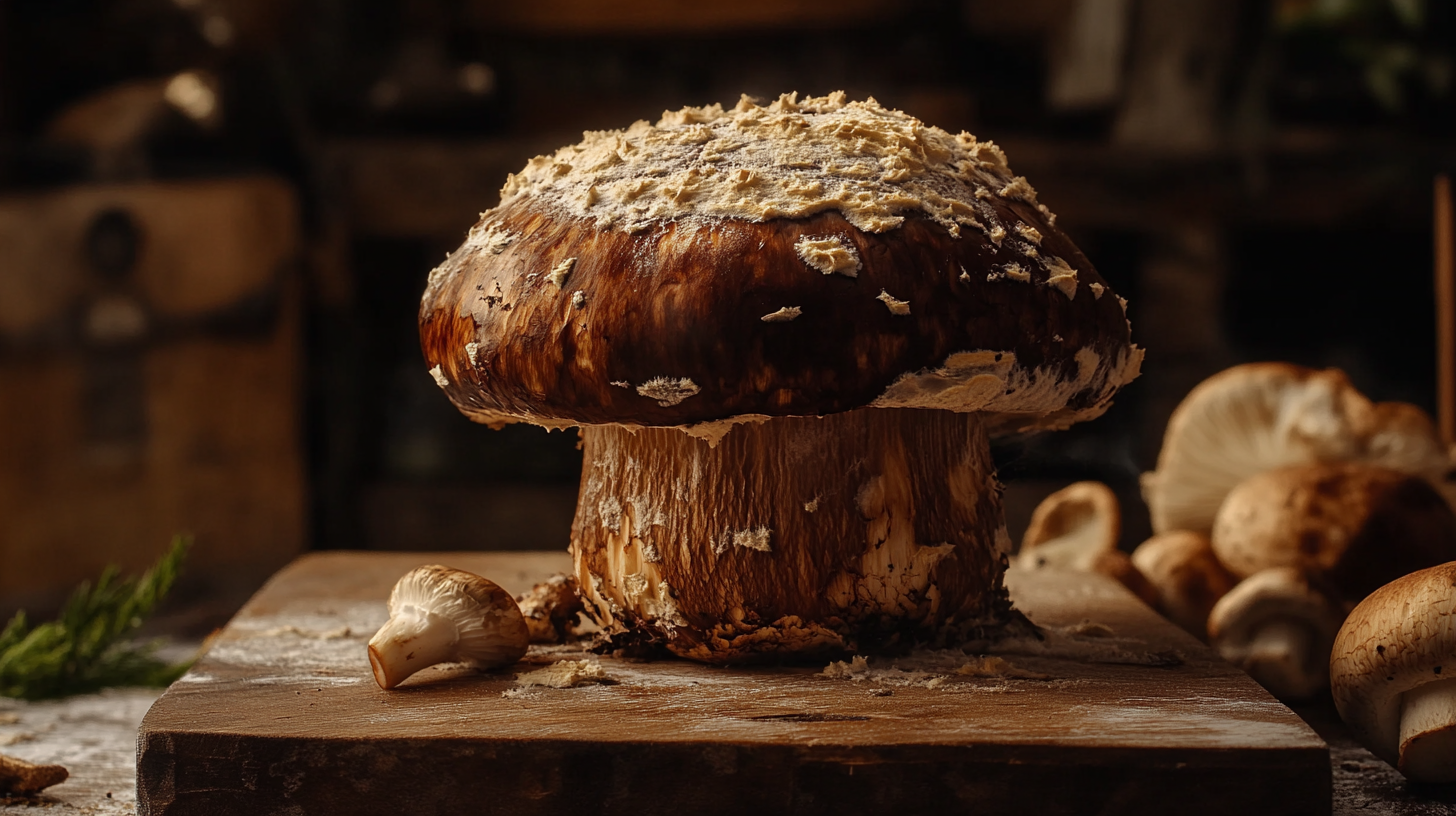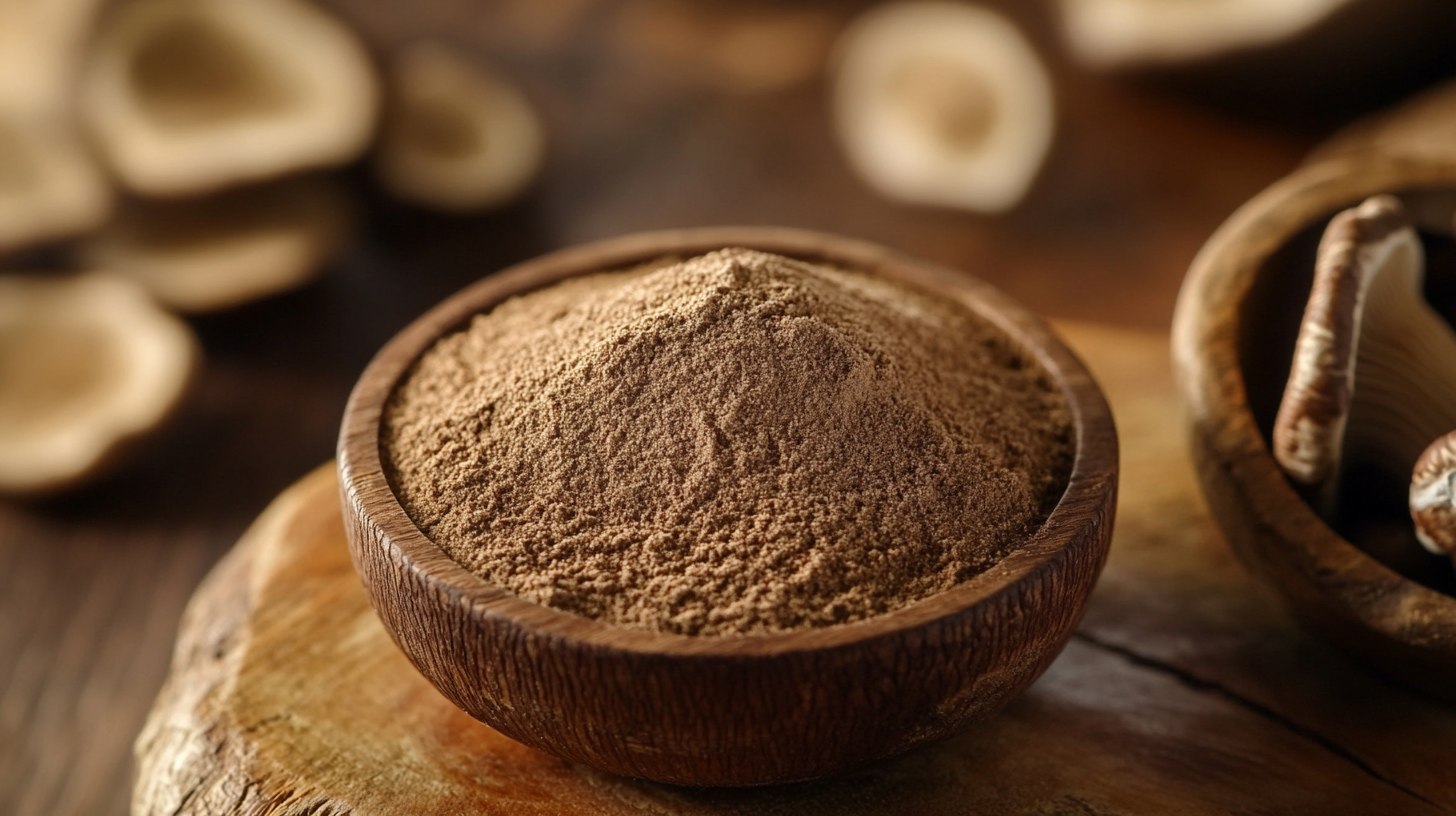The global demand for natural ingredients has surged in recent years, with consumers increasingly leaning towards health-promoting products. Among these, Shiitake Mushroom Extract has emerged as a star player, celebrated for its numerous health benefits including immune support and its potential in combating chronic diseases. However, the path to integrating Shiitake Mushroom Extract into international markets is fraught with complexities, as sourcing standards vary dramatically across different regions. This challenge raises significant questions about quality control, sustainable harvesting practices, and ethical sourcing.
As businesses strive to meet consumer expectations while adhering to varying regulatory requirements, the need for standardized global sourcing practices becomes paramount. Navigating the intricacies associated with Shiitake Mushroom Extract—its cultivation, processing, and distribution—presents both challenges and opportunities for stakeholders in the industry. This blog will explore the pressing issues surrounding Shiitake Mushroom Extract sourcing, highlighting the importance of establishing coherent standards that can support sustainable growth and maintain the integrity of this sought-after ingredient in the global market.

Shiitake mushroom extract has witnessed a significant surge in market demand, largely driven by an increasing consumer inclination towards natural and health-focused products. According to a recent market analysis by Grand View Research, the global shiitake mushroom market is projected to reach approximately USD 5.1 billion by 2027, expanding at a compound annual growth rate (CAGR) of 11.1% from 2020. This growth is supported by the rising awareness of the health benefits associated with shiitake mushrooms, including their potential to enhance immune function and their rich nutrient profile. In terms of global trends, the demand for shiitake mushroom extract is not limited to food products; it has permeated various industries, including pharmaceuticals and cosmetics. As indicated by a report from Fortune Business Insights, the cosmetics segment alone is expected to experience substantial growth, as consumers increasingly seek natural ingredients in skincare products. The growing trend of plant-based diets, along with an influx of innovative product formulations integrating shiitake extracts, continues to drive the market forward. Despite this upward trajectory, the shiitake mushroom extract industry faces challenges in global sourcing standards. Ensuring the authenticity and quality of sourcing while adhering to stringent regulations poses a significant hurdle. Reports suggest that up to 30% of mushroom products on the market may not meet health and safety guidelines due to varying international standards. As the market continues to expand, industries must navigate these complexities to maintain consumer trust and product integrity.

The shiitake mushroom extract has gained significant global attention due to its myriad health benefits and culinary applications. However, sourcing shiitake mushroom extract presents several challenges that stakeholders must navigate. The global mushroom market was valued at approximately USD 50.3 billion in 2021 and is projected to grow at a compound annual growth rate (CAGR) of 9.7% through 2030. This rapid expansion underscores the increasing demand for functional mushrooms like shiitake, yet the complexities of global sourcing remain pertinent.
One key challenge in the procurement of shiitake mushroom extract is ensuring consistent quality while adhering to various international sourcing standards. Different regions have varying regulations regarding organic certification, pesticide use, and sustainable harvesting practices. These discrepancies can lead to complications in supply chains, making it difficult for companies to maintain compliance and assure consumers of product integrity.
Moreover, the production of mushrooms, including shiitake varietals, plays a crucial role in addressing global health concerns. Research highlights their potential in treating skin disorders due to bioactive compounds found within, further emphasizing the importance of sourcing sustainably. As the demand for shiitake mushrooms grows, stakeholders must focus on innovative cultivation techniques and efficient logistics to alleviate sourcing challenges while satisfying market needs.

Sourcing shiitake mushroom extract has become a focal point in the global market, while navigating the complex landscape of regulatory standards. These standards vary significantly between countries and regions, posing challenges for companies aiming to maintain compliance while ensuring product quality. Regulatory frameworks often dictate not only the cultivation practices but also the extraction methods used, which can vary widely across different sourcing locations.
The impact of regulatory standards on sourcing shiitake mushrooms is profound. In regions such as the EU and North America, stringent guidelines exist regarding agricultural practices, pesticide usage, and environmental sustainability. These regulations are designed to protect consumer health and promote ethical practices within the supply chain. However, for suppliers, this means adapting to a myriad of compliance requirements, which can lead to increased costs and sourcing difficulties, especially if local producers are not equipped to meet these standards.
Moreover, the landscape of these regulations is in constant flux, requiring businesses to stay informed and agile. Changes in legislation can arise due to new research findings, shifting consumer preferences, or greater emphasis on sustainability. This dynamic nature of regulatory standards can create uncertainty for companies as they plan their sourcing strategies. Therefore, understanding and adapting to these standards not only aids in maintaining compliance but can also provide a competitive advantage in the growing market for shiitake mushroom extract.

The shiitake mushroom supply chain is increasingly under scrutiny as sustainability practices take center stage in global sourcing. With a market size projected to exceed $58.2 billion by 2023, largely driven by the rising demand for plant-based diets and sustainable food sources, it becomes imperative for stakeholders to adopt environmentally friendly practices. As more consumers seek transparency, the pressure for shiitake producers to align their operations with sustainability standards intensifies.
Recent data indicates that the sustainable apparel market is expected to grow from $3.9 billion in 2025 to $9.4 billion by 2034, reflecting a compound annual growth rate (CAGR) of 10.3%. This burgeoning interest in sustainability is indicative of a wider trend across various sectors, including food supply chains. Particularly in the shiitake mushroom industry, ensuring that sourcing practices uphold ecological integrity not only meets consumer demands but also contributes positively to overall market growth.
The concept of Environmental, Social, and Governance (ESG) investment is gaining momentum, even amidst economic contraction and market volatility. Companies are increasingly recognizing that integrating ESG principles can be a source of resilience. For shiitake mushroom suppliers, this means prioritizing sustainable agricultural practices, reducing carbon footprints, and ensuring fair labor conditions throughout the supply chain. As the global market evolves, those who embrace sustainable practices are likely to thrive, catering to a customer base that values ethics as much as quality.
The future of shiitake mushroom extract sourcing is poised to face significant challenges, particularly in relation to global sourcing standards and quality assurance practices. As the demand for natural extracts increases in various industries, there is a pressing need for stringent quality assurance mechanisms to ensure that these products meet both safety and efficacy requirements. This is where a robust quality management system becomes crucial.
Countries with advanced agricultural and manufacturing practices must set an example by implementing comprehensive quality assurance frameworks. These frameworks could be inspired by recent regulatory developments in industries such as nuclear power, where quality assurance outlines and safety measures are rigorously followed. The establishment of such standards can enhance confidence among consumers and businesses alike, ensuring that shiitake mushroom extracts are produced without compromising safety.
Furthermore, as globalization continues to expand the market for shiitake mushroom extracts, collaboration among international bodies will be essential. This collaboration can facilitate the sharing of best practices and innovations in quality assurance techniques. By doing so, the extract industry can ensure that sourcing is sustainable, transparent, and adheres to high standards, ultimately leading to better products and customer satisfaction.
2025 Bio-Botanica, a division of Bio Answer Holdings Inc. All Rights Reserved.